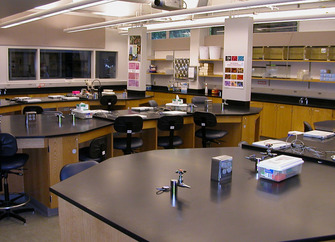Science became politicized by industries which had to change their ways due to environmental regulations designed to improve air and water quality.
And the businesses convinced evangelical religious followers of their position because many were concentrated in areas where those industries are big job providers. JL
Ryan Hopkins reports in Nature:
In a survey, 25% of American respondents answered that the sun orbits the Earth. A recent poll found 4 in 10 American adults doubt evolution, over half aren't confident that the Big Bang took place, 40% don't believe that pollution is causing climate change. 69% of Americans think scientists have falsified climate change research. Religious Americans are less likely to believe in theories like evolution or the Big Bang, which they feel directly contradict their religious beliefs. "These attitudes are reinforced when some of our leaders are antagonistic to established fact."In a 2012 survey by the National Science Foundation, 25% of American respondents answered that the sun orbits the Earth [1]. A recent AP-GFK poll found that as many as 4 in 10 American adults doubt evolution, over half aren't confident that the Big Bang took place, just under 40% don't believe that pollution is causing climate change, and 15% don't believe in the efficacy or safety of vaccines[2]. Surveys like these are good at eliciting disbelief and a laugh, but they beg the question: Why do so many Americans reject scientific theories?
Articles analyzing such surveys almost always cite religion as a root cause of disbelief in science. In a comprehensive study on the subject in 2009, the Pew Forum found that more religious Americans are less likely to believe in theories like evolution or the Big Bang, which they feel directly contradict their religious beliefs. However, religious faith is clearly an incomplete explanation, given that many religious scientists agree with the theories their non-scientist counterparts reject.[3]
Nobel-laureate Randy Schekman hinted at another cause in an AP interview, saying, "These attitudes are reinforced when some of our leaders are only antagonistic to established fact." With the amount of time and attention the political realm receives, it's hardly surprising that it has influence over belief in scientific theories. Environmental protection was a non-partisan issue in America until the 1980s, when environmental regulations were cast as economically harmful. This polarized the issue along political lines, with those on the left becoming much more likely to believe that human actions are causing climate change while those on the right rallied around economic interests.[4]
So why do political and religious ideologies win when they come into conflict with science? A 2012 study on conspiracy theories offers an explanation. Psychologists found that conspiracy theorists can hold their beliefs in the face of contradictory facts because of a process called global coherence, by which subjects selectively chose to believe only those facts which supported their worldview.[5] In the same way, political ideology and religion may shape how willing people are to accept scientific facts. For example, believing that governmental authorities are untrustworthy could allow one to ignore all evidence of a vaccine's efficacy.On the front lines, fighting for science, are the teachers in the classrooms where students are first exposed to major scientific theories. When teaching science, teachers have to contend with students' old ideas of how the world works, an uphill battle where the old ideas have the advantage. Children are exposed to scientific ideas at around age eight, when they become able to understand abstract concepts. Before that age, children rely on "magical thinking" to explain how the world exists and works, so, science education faces a tough challenge right from the start.[6] Despite the difficulties, classroom science instruction works very well under the right conditions. Unfortunately, a study analyzing the knowledge level of new college students revealed a concerning lack of understanding of evolution. Investigating the factors behind the knowledge gap, the study found that if high school teachers didn't delve into evolution to a large enough extent or included creationism in the discussion, the student's knowledge of evolution suffered greatly.[7] Not only must the curriculum be intelligently designed, but the teachers must be confident in the veracity of science. A 1990 study of teacher behavior found that teachers' beliefs influence both what content they presented in lessons and how they presented the nature of science over the course of the year. And in the close battle of ideas, any uncertainty in the teacher can leave students unconvinced.[8]One of the most powerful, and perhaps the most worrying, causes of disbelief is American's lack of trust in scientists. A 2011 poll found that 69% of Americans think that scientists have falsified climate change research. [9] Once Americans view scientists as a group that may intentionally mislead them in order to promote an agenda, all scientific theories are open to mistrust. When public figures start questioning hard science and pushing the public toward distrust, people listen. A 2011 poll found that when American responses to science questions were compared to respondents from other countries, Americans did relatively well except for when it came to questions about politicized issues like evolution. [10] In order to improve the perception of science in America, there must be a proactive response to each cause of disbelief. Initiatives like improving teacher education and depoliticizing scientific theories are the kind of actions needed to put Americans' confidence in science back on top.





















0 comments:
Post a Comment